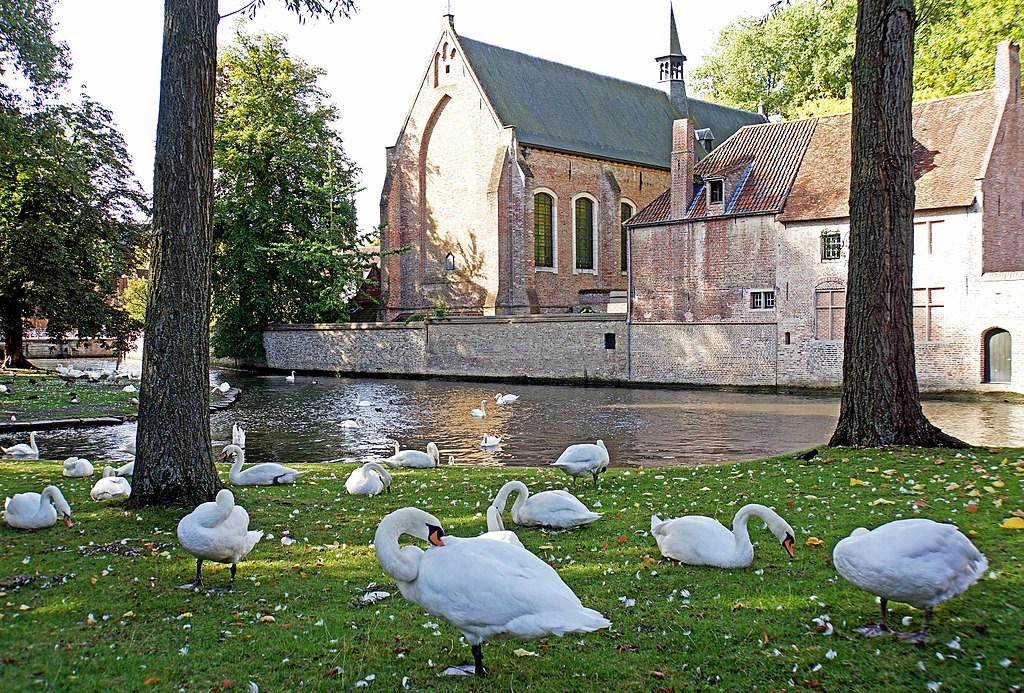Yesterday saw the release of 88 swans, familiar figures on the canals of Bruges, from quarantine, after no fewer than 142 days of quarantine, or almost five months of isolation.
Unusually in this day and age, this story has nothing to do with Covid-19, although the majority of the population may well feel sympathy at being cooped up for months at a time.
Instead, the Bruges swans were taken into protective custody as a result of bird flu, a seasonal disease that also affects other species including horses and dogs.
“The fact that they are free again is a moment that the residents of Bruges were looking forward to,” said city council member Mercedes Van Volcem (Open VLD).
“It wasn't the same without our white swans. They are still doing well.”
Related News
- Bruges removes canal swans after bird flu outbreak
- Pigeon population in Brussels reduced by 30% following contraceptive experiment
The quarantine was carefully prepared because the stress it causes to the birds can be fatal, as previous experience proved.
“Catching them and releasing them always involves some risks,” said Van Volcem. “We want to cause the animals as little stress as possible. Because they could die from the stress.”
According to Bruges mayor Dirk De fauw (CD&V), the risk of bird flu remains in the city, but the iconic swans will be protected.
“The risk of infection is rather low,” he said. “To limit the risk of contamination, we keep wild birds at bay as much as possible. We will therefore shield the feeding places with nets to prevent wild birds from reaching our swans as much as possible. The feeding places are made with a roof that protects the food.”
Feeding is also more rationed, he explained, so that the food is consumed as much as possible and there are few surpluses.
The hope now is that the rupture caused by quarantine will not affect the breeding season, which is now until May upon us.
“Under normal circumstances, about 20 young are born to our Bruges swans every year,” said Van Volcem.
“A swan's nest has about five to seven eggs. Our swans make large nests out of branches and plant material along the banks. Our service knows from experience that the swans will quickly pick up the thread again to build nests and breed. So we don't expect any complications or adverse consequences.”
Alan Hope
The Brussels Times

